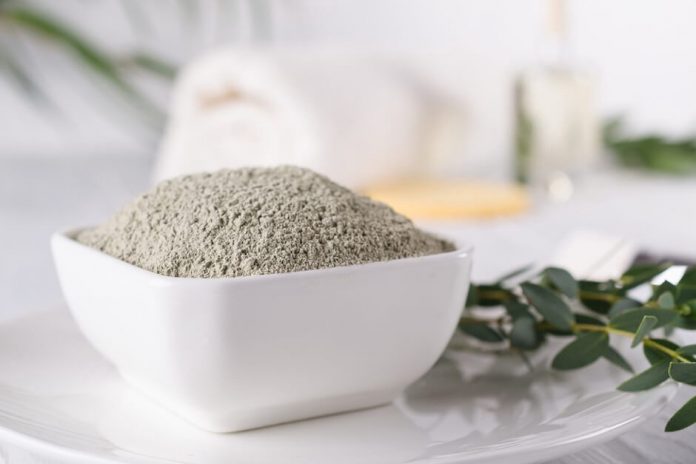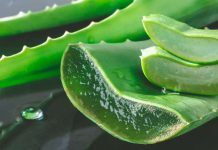Do you know the many uses of Bentonite clay? This natural mineral clay has the ability to remove toxins, bacteria, viruses, and heavy metals from water, soil, and our bodies. In the event of a disaster, its use can protect your health, or even save your life.
How Bentonite Clay Works
Bentonite clay works in a variety of ways to provide the body with beneficial health benefits. Its key benefits stem from three of its properties: it is absorbent, has a negative moisture content, contains nutrients and passes through the body without harm. In this article, we will discuss each of these characteristics in a little more detail, but it is important to know that these properties give bentonite clay its healthy features.
When wet, bentonite clay ionizes to form a negatively charged ion. Since most heavy metal toxins and many other toxic substances are positively charged, it attracts and binds to the toxin. As the Bentonite clay passes through the body, it binds toxins and flushes them out of the body.
Bentonite Clay for Health Benefits
1. Bentonite Clay Helps Detox the Body
We are exposed to a wide variety of toxins every day, no matter how clean we eat. Regular household products, such as cleaning supplies, markers, pesticides, gas fumes and even materials used to build our homes, release toxins such as mercury, cadmium, lead, benzene, petroleum products and other harmful substances. Exposure to these substances is likely to be even more evident during a catastrophic event, as we have seen in recent hurricanes and floods.
Harmful toxins get into the water supply, into our food, into the air we breathe and become concentrated in our bodies. However, bentonite clay, taken internally, binds to and removes toxins from our digestive system.
Take 1/2 to 1 teaspoon of dry clay with food or mix it in a few ounces of water, shake it well, and drink it quickly. The clay will not dissolve, so you may need to shake again as you drink it. Just do this once a day.
Taking Bentonite clay is a good detox practice to make your body healthy, but it will be even more important in a disaster situation where toxins can be emitted into the atmosphere through neglect.
2. Take Bentonite Clay as a Supplement
In relation to its benefits for detoxification, Bentonite also contains nutrients that your body needs, including calcium, magnesium, copper, iron, potassium, silica and sulfur. Your body absorbs these valuable minerals and many other trace minerals when you eat or drink clay, and uses them to build and repair body tissue.
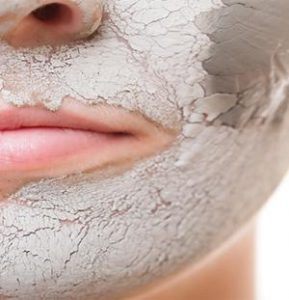
3. Use Bentonite Clay in Your Bath to Remove Toxins from the Skin
Fill in the bathing water with half or more cups of bentonite clay and soak it in. The clay binds fast and prevents toxins from reabsorbing through the skin. It will make your skin soft and smooth. It helps as a bonus to reduce skin inflammation.
If you bathe at a questionable water supply, this tip will become very important. Add the clay to the bath of your sponge, even if you’re not able to soak. It binds toxins from your skin and water.
4. Use as a Mask or Poultice to Reduce Skin Irritations and Speed Healing
Combine clay with water to form a thick paste and distribute to skin irritations in the skin such as poison ivy, allergic reactions, and red or inflamed skin. The clay binds and draws the skin pores from the pore to bacteria, viruses and toxins. It acts as a mild antibiotic and helps to reduce infections and improve injury or irritation treatment.
5. Take Bentonite as a Treatment for Digestive Problems
Studies indicate that bentonite clay is good for the absorption and neutralization of many of our digestive problems, such as bacteria, viruses and toxins. These problems are likely to get stronger during a survival situation so that a stock at hand can save lives. Can be used for all digestive problems, including constipation, nausea, IBS, sickness in the morning and food poisoning. In your water and drink, mix 1/2 cup or less. You should start feeling faster.
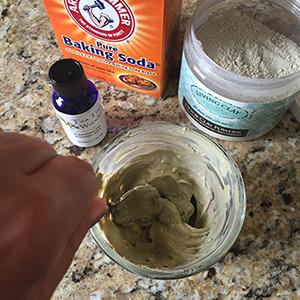
6. Use as a Toothpaste or Mouthwash to Protect Teeth and Gums
Remember the bentonite clay that you keep and break it out when you use the last toothpaste tube. Bentonite clay attaches to bacteria, contaminants and other unhealthy substances on the teeth and gums from the mouth. Use your toothbrush with clay or mix it as a mouth rinse into water.
7. Use Bentonite Clay to Purify Water
Bentonite is an excellent ingredient in your water purification kit, as it removes toxins and neutralizes bacteria and viruses. Use it before the final journey through your survival filter or before boiling to remove toxins and heavy metals.
Related: Disinfect Huge Amounts Of Water With This Common Household Item
8. Use Bentonite Clay to Prevent Chaffing
Some people soon find themselves in a major problem with no air conditioning, pickly heat and tangling during hot summer. When a Applied in folds of the skin, bentonite clay absorbs humidity and decreases inflammation. Apply a fine dust to the skin and wipe it or wash it away when it becomes damp.
9. Use Bentonite Clay to Treat Bug Bites, Bee Stings, and Small Wounds
Create a paste by adding a little water to the clay and apply to insect dents, scratches and other minor injuries directly. The sound draws the pitch and soothes the inflammation. Keep it on the wound or bite for a couple of hours and wash it off. If necessary, you can apply again.
Household Uses of Bentonite Clay
10. Use as an Absorbent
The absorbent properties of bentonite make it a perfect choice for liquids and odor absorption. It is currently used in kitty litters and can help people in an emergency. It is also helpful for oil and grease absorption.
Use bentonite as an absorbent and odor reducing agent in your emergency toilet kit. After each use, add a layer of clay.
11. Clean Contaminated Soils
Bentonite binds organic chemical compounds, heavy metals, pesticides, and other toxins found in contaminated soils. By mixing Bentonite into contaminated soil, it may be helpful to bind up soil contaminates. Keep in mind, however, that in a survival situation, there is no way to know what contaminates exist in the soil. Plant your garden on soil that is believed to be uncontaminated and mix Bentonite into the soil as a precaution.
Related: To Bleach Or Not To Bleach
12. Use as a Desiccant
Because Bentonite absorbs water well, it acts as a desiccant to draw moisture out of humid air or even to keep your stored food dry. Make a packet of dry Bentonite clay with a coffee filter, much like a tea bag, and place it into your dry food stores. The clay is food safe and absorbs moisture well. In humid areas, bake the clay packs in a low oven or place them in a dehydrator for a few hours to draw out all moisture and refresh them for future use.
13. Use Bentonite Clay as an Emergency Dry Hair Cleanser
During survival situations, a hot shower or even a quick shampoo may be impossible. Use the clay to absorb oils from the hair and give you a little more time before your next shampoo. Rub it into dry hair, allow it to sit for a few minutes, then comb brush it thoroughly to remove the clay and oil.
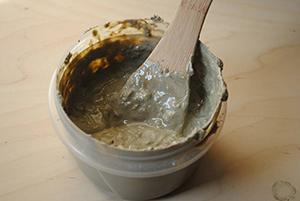
14. Use Bentonite Clay as a Deodorant
To make a thick paste, mix the bentonite clay with the coconut oil. If you like, add a few drops of your favorite essential oil, but it’s not necessary. Apply the paste with your fingertips and store the rest in a small jar for future use. The clay will absorb moisture and odor.
15. Use Bentonite Clay to Clean Your Fruits and Veggies
In the event of a disaster, you may not be able to trust the cleanliness of your food supply. Add a bit of Bentonite clay to the wash water for your fruit and vegetables to help neutralize viruses and bacteria and bind potential toxins to the surface of the skin to be washed away.
Stockpiling Bentonite Clay
Bentonite clay stores easily, without any need for treatment. Just place it in a safe food bucket, and it will be preserved longer. However, one caution is to take care of selecting high-quality Bentonite clay that is safe to consume. Do your research and ensure that the brand you choose is safe.
Now that you see how useful this stuff is, you’re going to want to stock up for a potential survival situation. The amounts you need will depend on how you intend to use them. But it is impossible to predict how useful this clay may be in a toxic environment in the future.
Do you know any other uses for Bentonite Clay? If so, please let us know in the comments. I’ve been trying to this complete, but I’m sure some of you probably know a few that I’ve missed.



